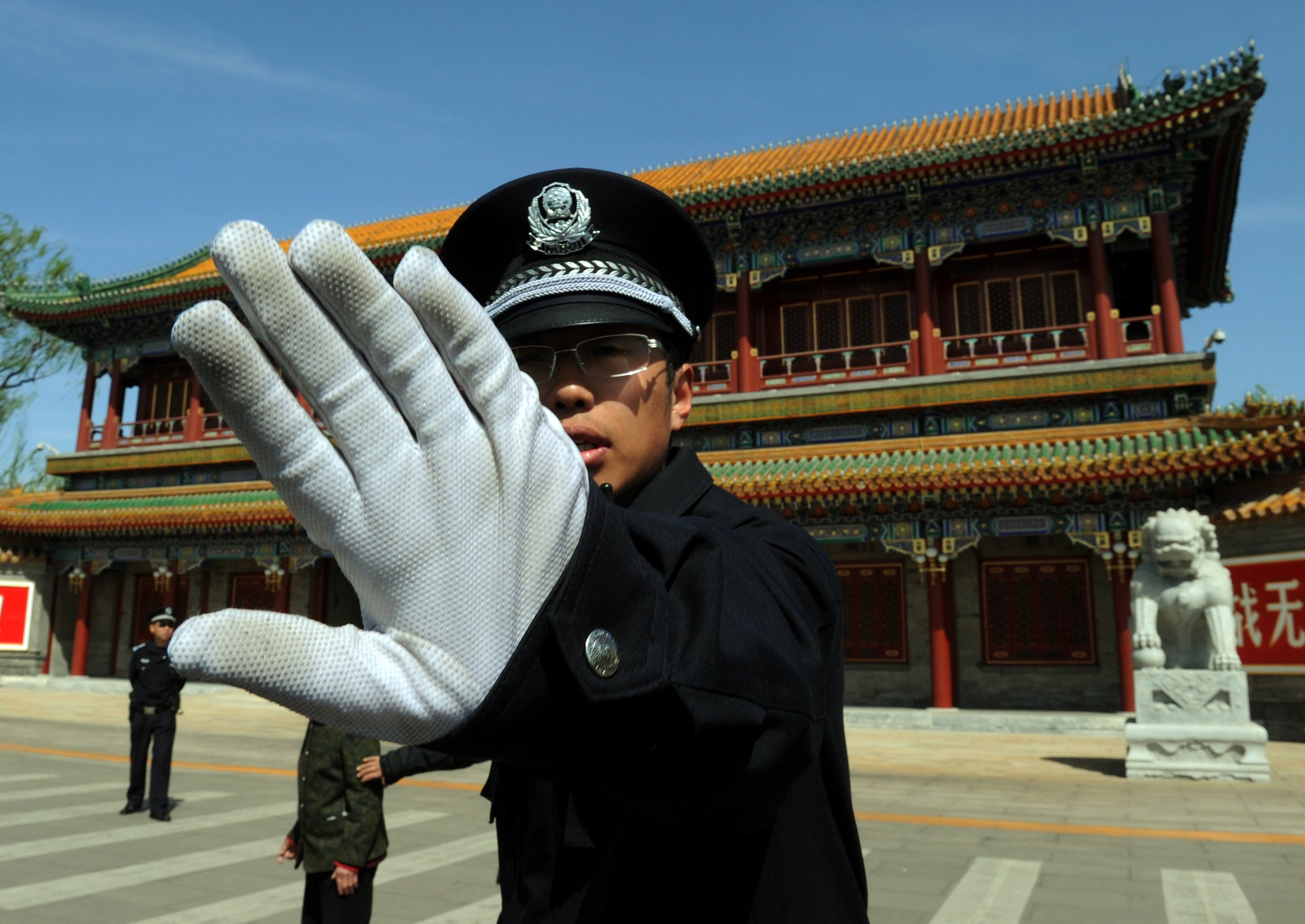Voices in Danger: Journalists detained on anniversary of Tiananmen Square massacre
The prominent Chinese journalist Huang Qi was recently arrested for reporting on a protester who set themselves on fire

Your support helps us to tell the story
From reproductive rights to climate change to Big Tech, The Independent is on the ground when the story is developing. Whether it's investigating the financials of Elon Musk's pro-Trump PAC or producing our latest documentary, 'The A Word', which shines a light on the American women fighting for reproductive rights, we know how important it is to parse out the facts from the messaging.
At such a critical moment in US history, we need reporters on the ground. Your donation allows us to keep sending journalists to speak to both sides of the story.
The Independent is trusted by Americans across the entire political spectrum. And unlike many other quality news outlets, we choose not to lock Americans out of our reporting and analysis with paywalls. We believe quality journalism should be available to everyone, paid for by those who can afford it.
Your support makes all the difference.Chinese authorities began a nationwide crackdown of journalists well before the 25th Anniversary of the Tiananmen Square massacre.
Huang Qi, a prominent journalist at The China Centre for Human Rights and founder the news website Skynet, was issued with a criminal summons and taken in for questioning on 14 March. His crime? Publishing a report of a protester who set herself alight in Tiananmen Square earlier in the month.
He says that he is psychologically prepared for possible re-imprisonment.
During his latest interrogation by Chinese security, Huang says they demanded he hand over his news sources and cease reporting allegations of on human rights violations. Though Huang was released the same day despite his non-compliance, this time he is ready for the worst.
Huang has already served two prison sentences totalling eight years, for “suspicion of state secrets” and “suspected trouble”.
“The last time the Chinese security department sent officers to arrest me directly," he says, "they also confiscated my office equipment. I had no opportunity to tell my family where I was.”
During his imprisonment, he reported enduring long stretches of interrogation that resulted in sleep deprivation. The near-constant stress has taken a toll on his health and his personal life.
In his second prison stint, he developed tumours in his stomach and chest. “My wife of several decades divorced me two years ago after much pressure from the Security Ministry. I was under surveillance for a long time after that,” he says.
Huang Qi also stated that Chinese officials have threatened his family and claims they have issued direct physical threats to Skynet volunteers. He further claims: “One of our volunteers also met with a mysterious car accident.“
He has seen a rounding-up of journalists and human rights protesters take place like clockwork every year prior to the anniversary of the Tiananmen Square Incident.
”After 1989, China's press freedom made some progress," he says. "This is not due to anyone's 'gift'. It is due to the countless journalists who have fought for their rights by going to jail or by giving their own lives so that there can be progress towards the country's return to freedom."
The latest round-up includes three Skynet journalists. Wing Jin, who took pictures of the self-immolating protester, was arrested days after his work appeared on the news website. Two other Skynet journalists were also taken into custody for “picking quarrels and provoking troubles”. None have been heard of since.
Human Rights organisations are calling for their release, along with dozens of other journalists who have been detained by Chinese authorities in the wake of this year's round-up.
“Perhaps if Chinese authorities would allow the media to give voice to ordinary citizens, they'd find fewer people so desperate to be heard that they are willing to set themselves on fire,” said CPJ Asia Program Coordinator Bob Dietz in New York.
UN High Commissioner for Human Rights Navi Pillay said, “It is in the interests of everyone to finally establish the facts surrounding the Tiananmen Square incidents. China has made many advances over the past 25 years, particularly in the area of economic and social rights, as well as legal reforms. Learning from events of the past will not diminish the gains of the past 25 years, but will show how far China has come in ensuring that human rights are respected and protected.”
The Committee to Protect Journalists' 2013 Prison Census ranks China the second worst jailer of journalists, close behind Turkey.
Representatives for the Chinese government were invited to comment on the points raised in this article. They did not respond.
Join our commenting forum
Join thought-provoking conversations, follow other Independent readers and see their replies
Comments